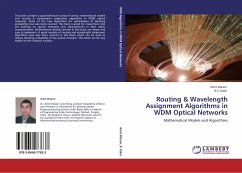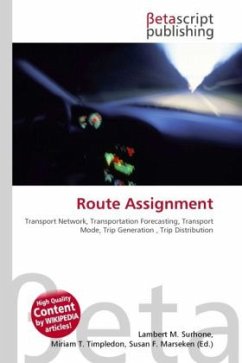
Multi-Robot Assignment and Formation Control
A method of efficient, dynamic formation synthesis and maintenance for mobile robots
Versandkostenfrei!
Versandfertig in 6-10 Tagen
32,99 €
inkl. MwSt.

PAYBACK Punkte
16 °P sammeln!
The fundamental goal of multi-agent robotics is simple: how to create control laws and behaviors that, when executed by each individual robot, some desirable global behavior emerges. The global behavior may range from something as simple as the robots meeting at a single point, to something as complex as a collective search and rescue mission. Our research focuses on one of the more fundamental issues in multi-agent, mobile robotics: the formation control problem. The idea is to create controllers that cause robots to move into a predened formation shape. This is a well studied problem for the...
The fundamental goal of multi-agent robotics is simple: how to create control laws and behaviors that, when executed by each individual robot, some desirable global behavior emerges. The global behavior may range from something as simple as the robots meeting at a single point, to something as complex as a collective search and rescue mission. Our research focuses on one of the more fundamental issues in multi-agent, mobile robotics: the formation control problem. The idea is to create controllers that cause robots to move into a predened formation shape. This is a well studied problem for the scenario in which the robots know in advance to which point in the formation they are assigned. In our case, we assume this information is not given in advance, but must be determined dynamically. This thesis presents an algorithm that can be used by a network of mobile robots to simultaneously determine ecient robot assignments and formation pose for rotationally and translationally invariant formations. This allows simultaneous role assignment and formation sysnthesis without the need for additional control laws.












